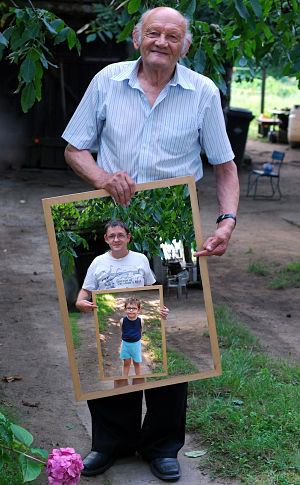|

Knowing
your family history is Habit #3 of our Five Healthy Lifestyle Habits to Reduce
Cancer Risk. Family health history is your biological family’s record of
illnesses. Having an understanding of your family’s health history can be
beneficial for knowing potential health threats.
One
of the main factors of your family health history is your genetic makeup.
Cancer is caused by gene mutations that affect how cells function (National
Cancer Institute). Five to 10 percent of all cancers are caused by inherited
genetic defects, or “hereditary cancer syndromes,” that have been passed down
the family tree (The American Cancer Society). You can learn about the more
common hereditary cancer syndromes that can be discovered through genetic
testing by clicking here.
Although
there’s nothing you can do to change your genetic makeup, knowing about it can
help you and your doctor decide which cancer screening tests you need and when
you should start getting screened. Your doctor will likely recommend you
undergo genetic testing if the following three circumstances are all true (National
Cancer Institute):
- You or your family history shows a likely chance of a hereditary cancer
syndrome.
- The results of the test will be able to clearly tell whether or not a
genetic mutation is present.
- The results of the test will be able to provide insight that will assist in
your future medical care.
Your family health history includes more than
just shared genes. It also includes shared lifestyle habits. For example,
according to a U.S. News article highlighting research from Georgetown
University’s Lombardi Comprehensive Cancer Center, “the longer children are exposed to the behavior of a parent addicted to
smoking, the more likely they are to start the habit themselves and become a
heavy smoker in the future.” We know from Habit #1 – Avoid Tobacco – that
smoking can cause cancers including acute myeloid leukemia and cancer of the
bladder, cervix, colon, esophagus, kidney, larynx, liver, lung, mouth, pancreas,
stomach and throat. Therefore, if cancer seems to “run in your family,” it may
be caused by shared lifestyle habits as opposed to an inherited gene mutation.
Knowing your family health
history is an important step toward a cancer-preventive lifestyle. Genes shared with
family members cannot be changed, however, alleviating poor lifestyle habits
such as smoking, lack of exercise, and an unhealthy diet can help decrease your
risks.
|
|
|